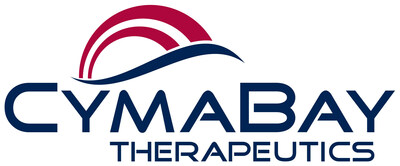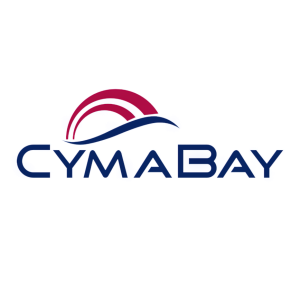CymaBay Therapeutics Presents Data Showing Seladelpar Treatment in Primary Biliary Cholangitis (PBC) Correlates with Alleviation of Self-Reported Pruritus and Reduction in Serum IL-31 Levels
Additional data presented at The International Liver Congress™ 2023 show clinical risk factors for PBC disease progression present in a broader population of UDCA-treated PBC patients
Preclinical data points to need for the study of novel pathways mediated by seladelpar and their role in reducing fibrosis
Seladelpar treatment resulted in correlated decreases in serum IL-31 and pruritus in patients with primary biliary cholangitis (PBC): post-hoc results from the phase 3 randomized, placebo-controlled ENHANCE study
June 21st 9am – 6pm CET; Abstract #TOP-063
In a post-hoc analysis of the Phase 3 ENHANCE trial, the effect of seladelpar on serum IL-31 levels and its correlation with reported pruritus improvements in patients with PBC was seen after three months of treatment, showing significant decreases in mean IL-31 levels from baseline: seladelpar 5 mg (3.8 to 1.7 pg/mL, p < 0.001), 10 mg (4.2 to 1.7 pg/mL, p < 0.001) compared to placebo (4.3 to 3.9 pg/mL, not significant). Serum IL-31, bile acids, and their correlation with patient-reported pruritus numerical rating scale (NRS, 0-10) were also assessed. Patients with clinically meaningful improvement in pruritus (≥ 2 decreases in NRS score) showed greater dose-dependent reductions in IL-31 from baseline than those without pruritus improvement. Further significant correlations were observed between changes in IL-31 versus reported pruritus NRS scores (r = 0.54, p < 0.0001), alkaline phosphatase (ALP) levels (r = 0.40, p <0.01), and total bile acids (r = 0.63, p < 0.0001) in the seladelpar 10mg group. These results suggest that IL-31 may have a role in pruritus in patients with PBC.
"Severe itch stands out as a prevailing and distressing clinical symptom experienced by many patients with PBC. There's been limited understanding of the underlying pathology of itch," said Professor Andreas E. Kremer, MD, Ph.D., MHBA, a leading authority in cholestatic pruritus from the University of
Baseline characteristics and risk profiles of 1111 patients with primary biliary cholangitis (PBC) in need of second-line therapy
June 21st 9am – 6pm CET; Abstract #WED-256
Patients previously treated with UDCA with persistent elevation of ALP, but who were not currently recommended by guidelines for second-line treatment, nonetheless had a significant risk for disease progression, highlighting the need for second-line therapy for a broader patient group.
In a post-hoc analysis of four seladelpar clinical trials from 2015 to 2022, 1111 patients with PBC were screened after treatment with UDCA for ≥ 12 months, or intolerance to UDCA. Researchers compared the baseline characteristics and risk profiles of these patients based on ALP levels (≥ 1.67×ULN) to those who did not meet the standard inclusion threshold but still had elevated ALP above the ULN. Higher-risk bilirubin levels were present in
"Drawn from our considerable experience in clinical trials in PBC, our findings suggest that patients with any level of ALP elevation are at risk for disease progression and that additional factors beyond ALP are likely to contribute to future poor outcomes for patients who may be undertreated. The unmet need is evidently even greater than what's currently accounted for," said Charles McWherter, Ph.D., Chief Scientific Officer and President of Research and Development at CymaBay. "CymaBay's commitment to addressing the unmet needs of patients with liver and chronic diseases remains unwavering, and the data presented at EASL reinforce our conviction that we need to complete our evaluation of the safety and efficacy of seladelpar in PBC. The new directions we've presented at EASL 2023 reaffirms the potential of seladelpar to transform the treatment landscape with a therapy to improve disease markers, reduce symptom burden, and provide hope for a better overall quality of life."
Novel Pathways implicated in the seladelpar-mediated reductions of established liver fibrosis are identified from RNA-SEQ data using plex search and two independent mouse pharmacology datasets
June 21st 9am – 6pm CET; Abstract #WED-246
Transcriptomics data produced from two distinct fibrosis mouse models, coupled with a search platform capable of searching publicly available databases, revealed unique aspects of the seladelpar anti-fibrotic mechanism. This includes a reduction in lipocalin family member gene expression.
Lipocalins have not previously been associated with PPARδ, though levels are correlated with fibrosis. Decreases in lipocalin-2 have been associated with decreased inflammation in disease models. The study identified several other gene family expression changes, including reductions in clade A serpin protease inhibitors, which could imply proteolytic fibrolysis as a contributing factor to the decrease in fibrosis.
For more information about EASL 2023, including the complete list of presentations, please visit: https://www.easlcongress.eu/
The presentations will also be made available after the congress on the CymaBay website, www.cymabay.com
About Primary Biliary Cholangitis
PBC is a rare, chronic inflammatory liver disease primarily affecting women (1 in 1,000) over the age of 40. PBC is characterized by impaired bile flow (known as cholestasis) and the accumulation of toxic bile acids in the liver, leading to inflammation and destruction of the bile ducts within the liver and causing increased levels of ALP and total bilirubin. The most common early symptoms of PBC are itching (pruritus) and fatigue, which can be very debilitating for some patients. Progression of PBC is associated with an increased risk of liver cancer and liver-related mortality.
About Seladelpar
Seladelpar is a first-in-class oral, potent, selective peroxisome proliferator-activated receptor (PPAR) delta agonist, or delpar shown to regulate critical metabolic and liver disease pathways in indications with high unmet medical need. Preclinical and clinical data support its ability to regulate genes involved in bile acids synthesis, inflammation, fibrosis and lipid metabolism, storage and transport.
About CymaBay
CymaBay Therapeutics, Inc. is a clinical-stage biopharmaceutical company focused on improving the lives of people with liver and other chronic diseases that have high unmet medical need through a pipeline of innovative therapies. Our deep understanding of the underlying mechanisms of liver inflammation and fibrosis, and the unique targets that play a role in their progression, have helped us receive breakthrough therapy designation (
Cautionary Statements
Any statements made in this press release regarding the potential approval, launch and commercialization of seladelpar or timing or plans in regard thereto, as well as statements regarding the completion of ongoing clinical trials and subsequent regulatory submissions are forward-looking statements that are subject to risks and uncertainties. Actual results and the timing of events regarding the further development of seladelpar could differ materially from those anticipated in such forward-looking statements as a result of risks and uncertainties, which include, without limitation, risks related to: the success, cost and timing of any of CymaBay's product development activities, including clinical trials; effects observed in trials to date that may not be repeated in the future; any delays or inability to obtain or maintain regulatory approval of CymaBay's product candidates in
Public Relations Contact:
Theresa Dolge
Evoke Kyne
(609) 915-2156
Theresa.Dolge@evokegroup.com
Investor Relations Contact:
Hans Vitzthum
LifeSci Advisors, LLC
(617) 430-7578
Hans@LifeSciAdvisors.com
![]() View original content to download multimedia:https://www.prnewswire.com/news-releases/cymabay-therapeutics-presents-data-showing-seladelpar-treatment-in-primary-biliary-cholangitis-pbc-correlates-with-alleviation-of-self-reported-pruritus-and-reduction-in-serum-il-31-levels-301855903.html
View original content to download multimedia:https://www.prnewswire.com/news-releases/cymabay-therapeutics-presents-data-showing-seladelpar-treatment-in-primary-biliary-cholangitis-pbc-correlates-with-alleviation-of-self-reported-pruritus-and-reduction-in-serum-il-31-levels-301855903.html
SOURCE CymaBay Therapeutics








